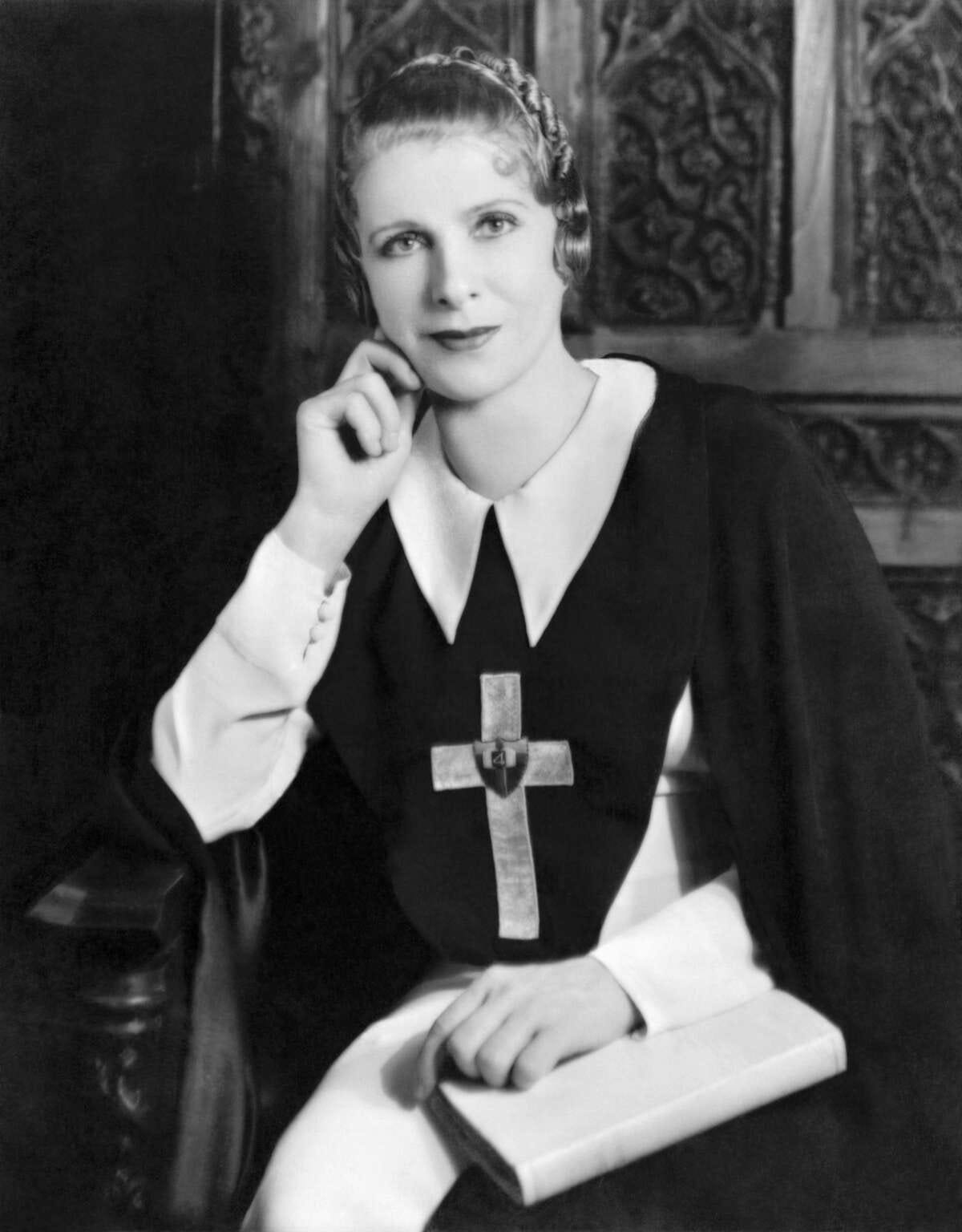Aimee Semple McPherson: Evangelist, Media Pioneer, and Icon of Faith Healing in 20th-Century America

Aimee Elizabeth Semple McPherson, widely known as Sister Aimee, was a charismatic Pentecostal evangelist and a prominent figure in American religious history during the early to mid-20th century. Her life and ministry were marked by pioneering the use of mass media in evangelism, founding the Foursquare Church, and conducting dramatic faith healing demonstrations that drew national attention.
Aimee Elizabeth Kennedy was born on October 9, 1890, in Salford, Ontario, Canada, to James and Mildred Kennedy. Raised in a devout Christian household, Aimee was influenced early on by her mother's involvement in the Salvation Army, where she witnessed firsthand the compassionate outreach to the poor. This exposure planted the seeds of her future calling, though she initially rebelled against the strictures of her mother's Salvation Army beliefs, exploring secular activities like novels and dances.
Her life took a pivotal turn when, at the age of 17, she attended a revival meeting in 1907 where she met Robert James Semple, a Pentecostal missionary from Ireland. Captivated by his message, Aimee converted to Pentecostalism and married Semple in 1908. Together, they embarked on a missionary journey to China, where tragedy struck when Semple died of malaria. Aimee, pregnant with their child, returned to the United States, deeply impacted by her husband's death and her newfound faith.
Back in the United States, Aimee immersed herself in evangelistic work, first with the Salvation Army and later as an independent preacher. In 1912, she married Harold McPherson, a union that ended in divorce in 1921 due to his inability to fully support her evangelistic calling. Aimee's passion for evangelism led her to travel extensively, conducting tent revivals across the country, where she gained recognition for her dynamic preaching style and faith healing practices.
Her ministry reached new heights when she settled in Los Angeles in 1918, establishing the Angelus Temple, a megachurch that became the centrepiece of her evangelical efforts. The temple, funded largely through donations solicited "by faith," became a symbol of her vision to create a space where people of all backgrounds could worship together under the banner of the Foursquare Gospel—a term she coined to represent Jesus Christ as the Saviour, Baptizer with the Holy Spirit, Healer, and Soon-Coming King.
Aimee McPherson's approach to ministry was revolutionary for its time, especially in its use of modern media. She leveraged radio broadcasts and staged sermons that incorporated theatrical elements, drawing massive crowds and turning the Angelus Temple into a cultural phenomenon. Her ability to blend religious fervour with entertainment drew comparisons to Hollywood productions, catapulting her to national fame and making her the most publicised Protestant evangelist of her era.
However, fame also brought scrutiny. In 1926, McPherson made headlines when she disappeared for several weeks, sparking a nationwide search that ended with her reappearance in Mexico, claiming to have been kidnapped. The incident, which some sceptics believed was staged, tarnished her reputation but did not diminish her influence on the growing charismatic movement in Christianity.
Central to McPherson's ministry was her belief in faith healing, where she claimed the power to heal the sick through prayer and laying on of hands. These healing sessions, often conducted in front of large audiences, became a hallmark of her revivals, attracting thousands seeking physical and spiritual healing. While controversial and subject to scepticism, these demonstrations cemented her status as a spiritual leader with a direct connection to the divine.
Beyond her healing ministry, McPherson was deeply committed to charitable endeavours. During the Great Depression, she mobilised her congregation to provide food, clothing, and medical assistance to the needy, earning widespread praise for her humanitarian efforts. The Angelus Temple became a hub for social services, offering everything from free meals to job placement assistance, reflecting McPherson's belief that true Christianity required both spiritual devotion and practical acts of compassion.
Aimee Semple McPherson's legacy extends beyond her immediate influence on Pentecostalism and charismatic Christianity. Her pioneering use of media in religious broadcasting laid the foundation for future televangelists and Christian media networks. The Foursquare Church, which she founded in 1927, continues to thrive worldwide, emphasising a holistic approach to ministry that includes evangelism, discipleship, and community service.
Despite controversies and personal hardships—including multiple marriages and public scandals—McPherson's impact on American religious culture remains significant. Her ability to blend traditional evangelism with modern media strategies set a precedent for how faith could be communicated in an increasingly secular society. Today, her life and ministry are studied not only for their religious implications but also for their enduring relevance to the intersection of faith, media, and public life.
Aimee Semple McPherson stands as a towering figure in the history of American Christianity, remembered for her innovative approach to evangelism, her unwavering faith, and her dedication to serving others. Her story serves as a testament to the power of conviction and the enduring influence of those who dare to challenge conventions in pursuit of their divine calling.



















